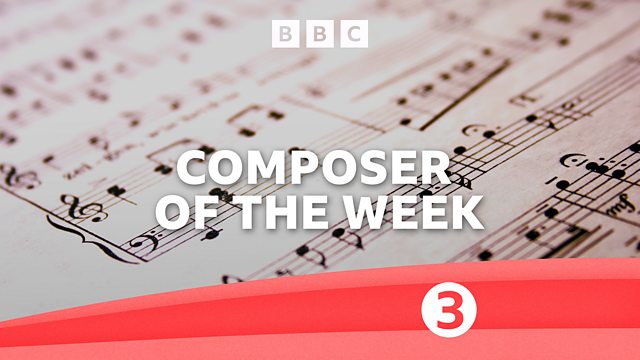
5. Unfinished business
Donald Macleod explores Puccini's genius for creating the sound worlds of Madama Butterfly and Turandot.
Donald Macleod explores Puccini's genius for creating different sound worlds in Madama Butterfly and Turandot.
Giacomo Puccini was man of the theatre to his fingertips. Born in Lucca in 1858, into a distinguished family of church musicians, Puccini was never destined to follow in his forebears’ footsteps. His fate was sealed when as a teenager he walked thirty miles to hear Verdi’s Aida. He knew immediately that theatre was his calling and from that point on he wrote almost exclusively for the stage.
A perfectionist and an often unreasonable taskmaster, Puccini agonised over each of his operas. Beginning with Manon Lescaut, the opera that launched Puccini internationally, this week Donald Macleod follows the off and the on-stage dramas of La Bohème, Tosca, Madama Butterfly, La fanciulla del West, Suor Angelica, Gianni Schicchi, Il tabarro and the opera he left incomplete at his death in 1924, his final masterpiece, Turandot. The stories on stage are interleaved with events in his personal life, from an early scandal over his affair with a married woman and some very dodgy skulduggery in his business dealings, to the suicide of one of his servants, a tragedy of such proportion, he was plunged into a deep depression, haunted by the events for the rest of his life.
In a week celebrating a composer whose music expresses every human emotion, there's a host of landmark recordings, including the voices of Jonas Kaufmann, Angela Gheorghiu, Anna Netrebko and Roberto Alagna, We'll hear Mimì's touching calling card from La Bohème, in the classic Victoria de los Angeles version while Renato Scotto pours all Madam Butterfly's hopes into the heartbreaking Un bel dì. There's the raw pain of Sister Angelica mourning her dead son, and the dark desperation of a jealous husband in Il tabarro. On Wednesday Callas and Gobbi’s anguished, sadistic torture scene in Tosca still has the power to shock us as much as it did on its first night in 1900. It's high stakes and nail-biting tension in La fanciulla del West as Minnie trades the life of her outlaw lover on the outcome of a card game. Joan Sutherland’s icy Princess Turandot, a magnificent pairing with Luciano Pavarotti’s Prince Calaf comes on Friday along with a certain aria made famous by the 1990 world cup, heard here in the hands of another Puccini specialist, Jussi Björling.
As soon as the ink was dry on one project, Puccini would start looking ahead to the next. However, from 1900 onwards he was beset by doubts and anxieties, unable to decide on the subject for his next opera. In the end it was the instruments and melodies of the Far East that provided new inspiration.
Turandot
Nessun dorma
Jussi Björling, tenor, Prince Calaf
Rome Opera Orchestra
Erich Leinsdorf, conductor
Madama Butterfly, Act 2
Un bel dì vedremo
Anna di Stasio, mezzo soprano, Suzuki
Renata Scotto, soprano, Cio-cio San
Rome Opera House Orchestra
John Barbirolli, conductor
Madama Butterfly, Act 2
Una nave da guerra
Scuoti quella fronda di ciliegio
Or vieni ad adornar
Anna di Stasio, mezzo soprano, Suzuki
Renata Scotto, soprano, Cio-cio San
Rome Opera House Orchestra
John Barbirolli, conductor
Turandot, Act 1
In Questa Reggia
Ascolta straniera
Gloria o vincitore!
Joan Sutherland, soprano, Princess Turandot
Luciano Pavarotti, tenor, Calaf
Peter Pears, tenor, Emperor
Montserrat Caballe, soprano, Liu
London Philharmonic Orchestra
John Alldis choir
Zubin Mehta, conductor
La Bohème, Act 4
Fingevo dormire
Angela Gheorghiu, soprano, Mimi
Roberto Alagna, tenor, Rodolfo
Roberto de Candia, baritone, Schaunard
Elizabetta Scano, mezzo soprano, Musetta,
Simon Keenlyside, baritone, Marcello
Ildebrando d’Arcangelo, bass, Colline
Orchestra of La Scala, Milan
Riccardo Chailly, conductor
Producer: Johannah Smith
Last on
More episodes
Next
You are at the last episode
Music Played
-
![]()
Giacomo Puccini
Turandot, Act 3, Sc 1: Nessun Dorma
Singer: Jussi Björling. Choir: The Rome Opera Chorus. Orchestra: The Rome Opera Orchestra. Conductor: Erich Leinsdorf.- RCA : RD-85932/B.
- RCA.
- 9.
-
![]()
Giacomo Puccini
Madama Butterfly, Act 2: Un bel dì vedremo
Singer: Renata Scotto. Singer: Anna di Stasio. Orchestra: The Rome Opera Orchestra. Conductor: John Barbirolli.- EMI : 56-78852.
- EMI.
- 21.
-
![]()
Giacomo Puccini
Madama Butterfly, Act 2 (excerpt)
Singer: Renata Scotto. Singer: Anna di Stasio. Orchestra: The Rome Opera Orchestra. Conductor: John Barbirolli.- EMI : 56-78852.
- EMI.
- 10.
-
![]()
Giacomo Puccini
Turandot, Act 1 (excerpt)
Singer: Joan Sutherland. Singer: Luciano Pavarotti. Singer: Peter Pears. Choir: The John Alldis Choir. Orchestra: London Philharmonic Orchestra. Conductor: Zubin Mehta.- DECCA : 414-274-2.
- DECCA.
- 1.
-
![]()
Giacomo Puccini
La Boheme, Act 4: Fingevo dormire
Singer: Angela Gheorghiu. Singer: Roberto Alagna. Singer: Roberto de Candia. Singer: Elisabetta Scano. Singer: Simon Keenlyside. Singer: Ildebrando d’Arcangelo. Orchestra: Orchestra of La Scala, Milan. Conductor: Riccardo Chailly.- DECCA : 466-070-2.
- DECCA.
- 14.
Broadcasts
- Fri 31 Dec 2021 12:00����ý Radio 3
- Fri 29 Nov 2024 16:00����ý Radio 3
Beethoven Unleashed – the box set
What was really wrong with Beethoven?
Composers A to Z
Who knew? Five eye-opening stories from Composer of the Week
Five reasons why we love Parry's Jerusalem
What is the strange power of Jerusalem which makes strong men weep?
A man out of time – why Parry's music and ideas were at odds with his image...
The composer of Jerusalem was very far from the conservative figure his image suggests.
Composer Help Page
Find resources and contacts for composers from within the classical music industry.





